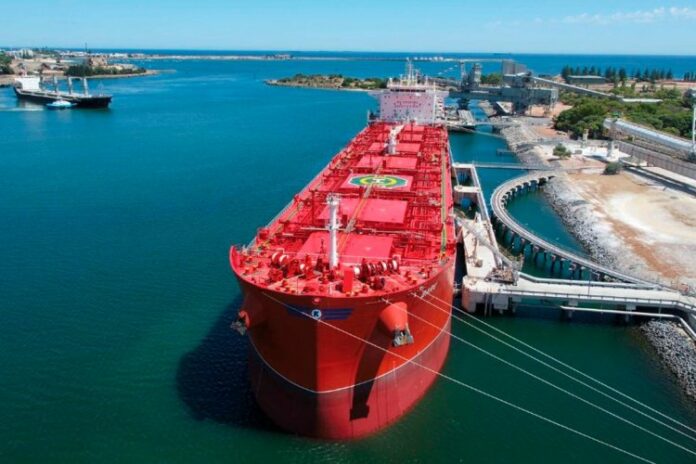ZeroLab by Klaveness and South32 have partnered to complete an analysis of greenhouse gas (GHG) emissions generated through shipping, which contribute to South32’s reported Scope 3 emissions. The work aims to provide more accurate insights into shipping emissions to better inform decisions on how they can be addressed.
The analysis tracked greenhouse gas emissions generated by the transport of freight through shipping with calculations based on satellite data, using actual vessel behaviour and sailing distance. This method improves accuracy when compared to the previous method, where calculations were based on spend associated with shipping procurement.
The data is then made available through an online dashboard powered by Klaveness Digital’s CargoValue solution, which includes information such as shipping related emissions per vessel, and the associated loading and discharge ports.
The project reflects the increasing demand from customers, investors, and other stakeholders for high-quality sustainability data.
The next phase of the project will see ZeroLab and South32 establish an emissions baseline and review the data to explore potential opportunities to reduce emissions associated with the shipment of South32’s raw material inputs and products.
Head of ZeroLab Morten Skedsmo said:
“Charterers are keen to understand the role of transportation in their emissions footprint, but while we wait for regulation to catch up, the industry will depend on front-runners to pave the way towards a future of zero emissions freight. Klaveness’ unique platform of services is perfectly positioned to help South32 on that journey.”
South32 VP Sustainability Strategy & Community Holly Buschman said:
“Working with ZeroLab enables us to assess greenhouse gas emissions more accurately within the value chain. The improved data will give us valuable insights and assist with our decision-making when it comes to addressing Scope 3 emissions. We recognise the critical importance of collaborating to support value chain decarbonisation.”



